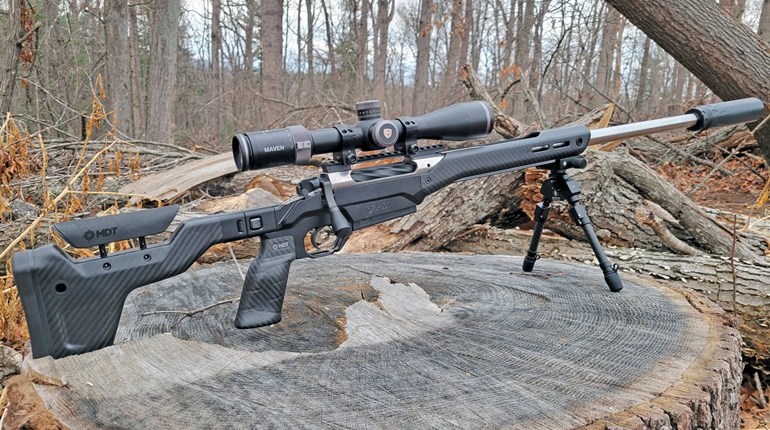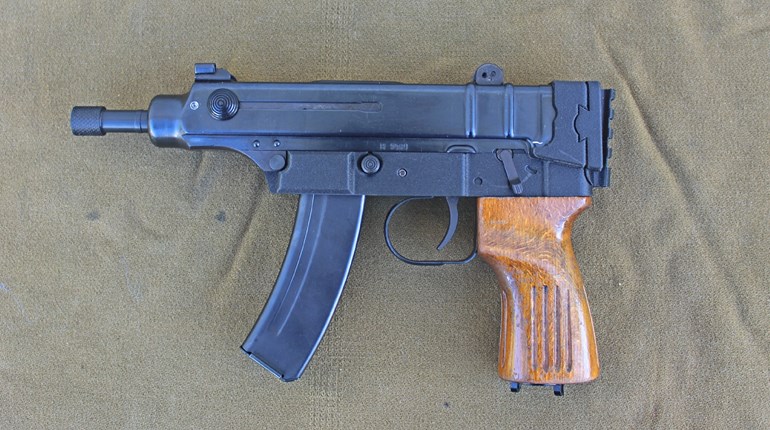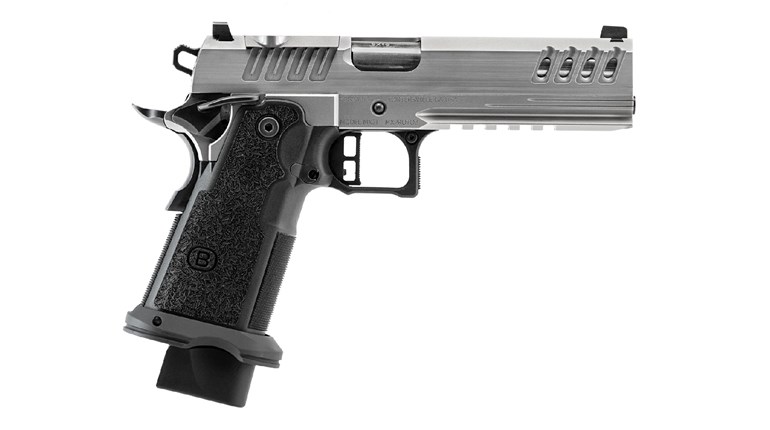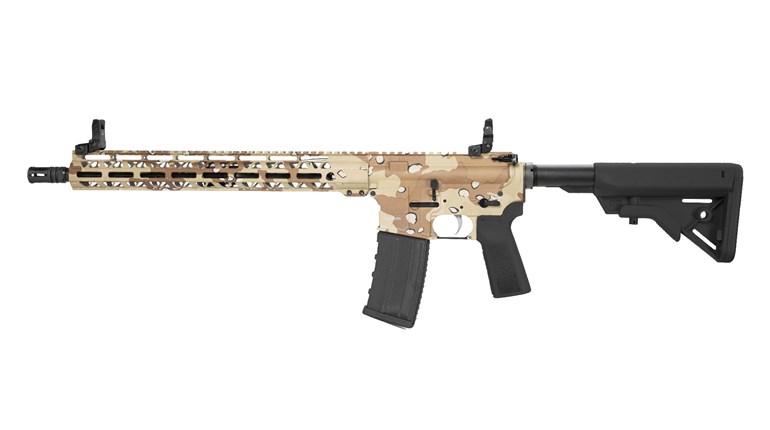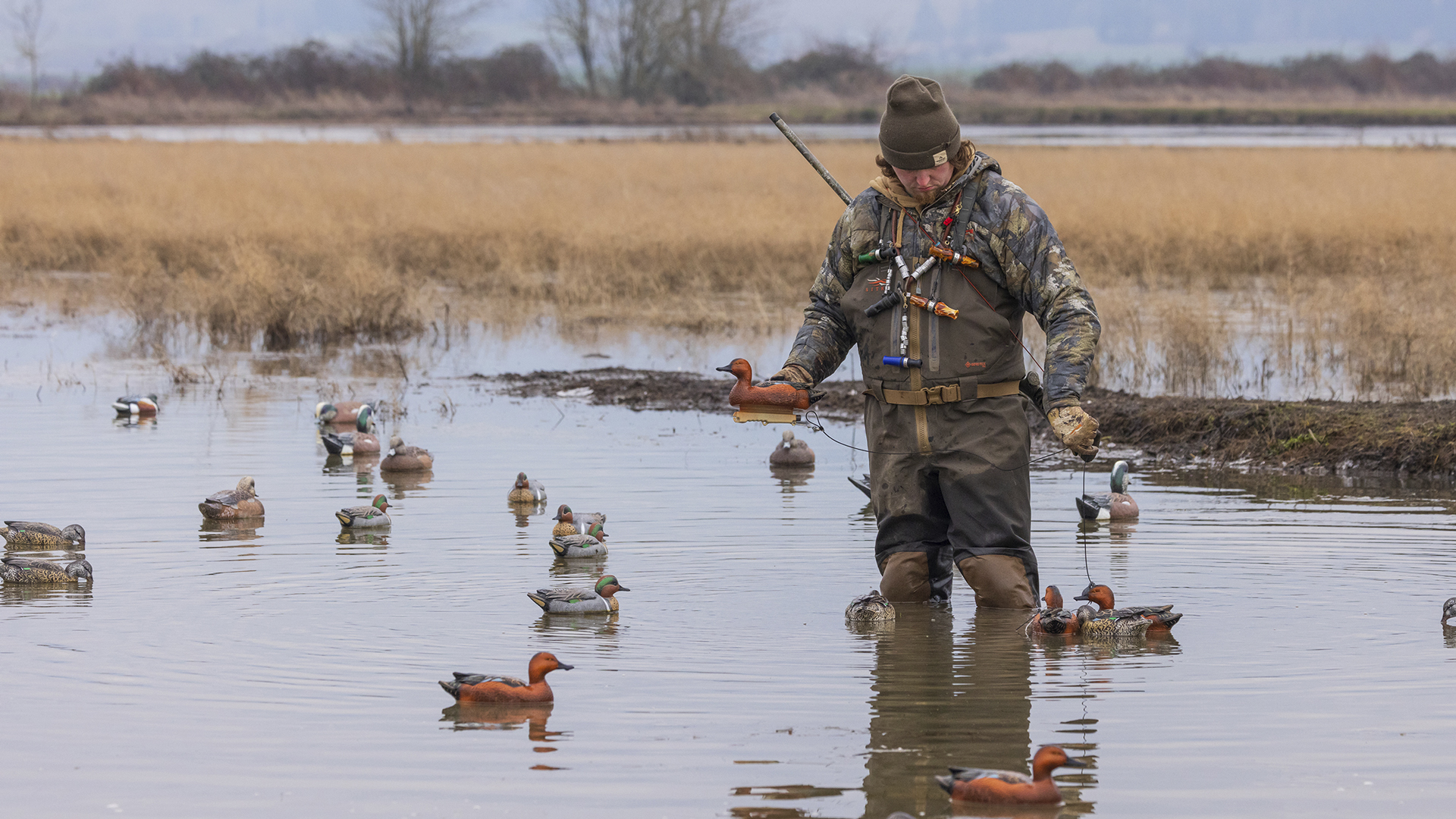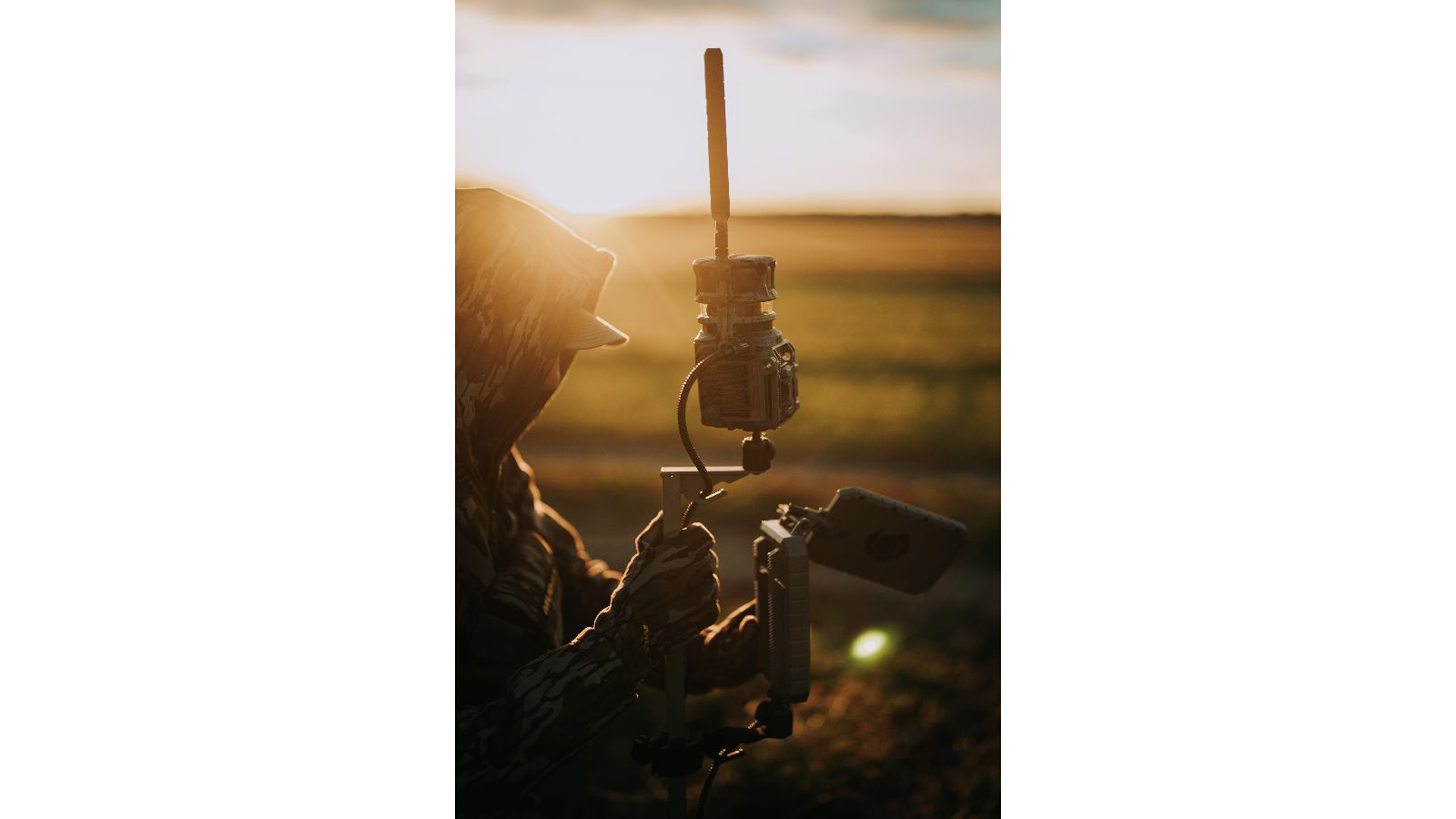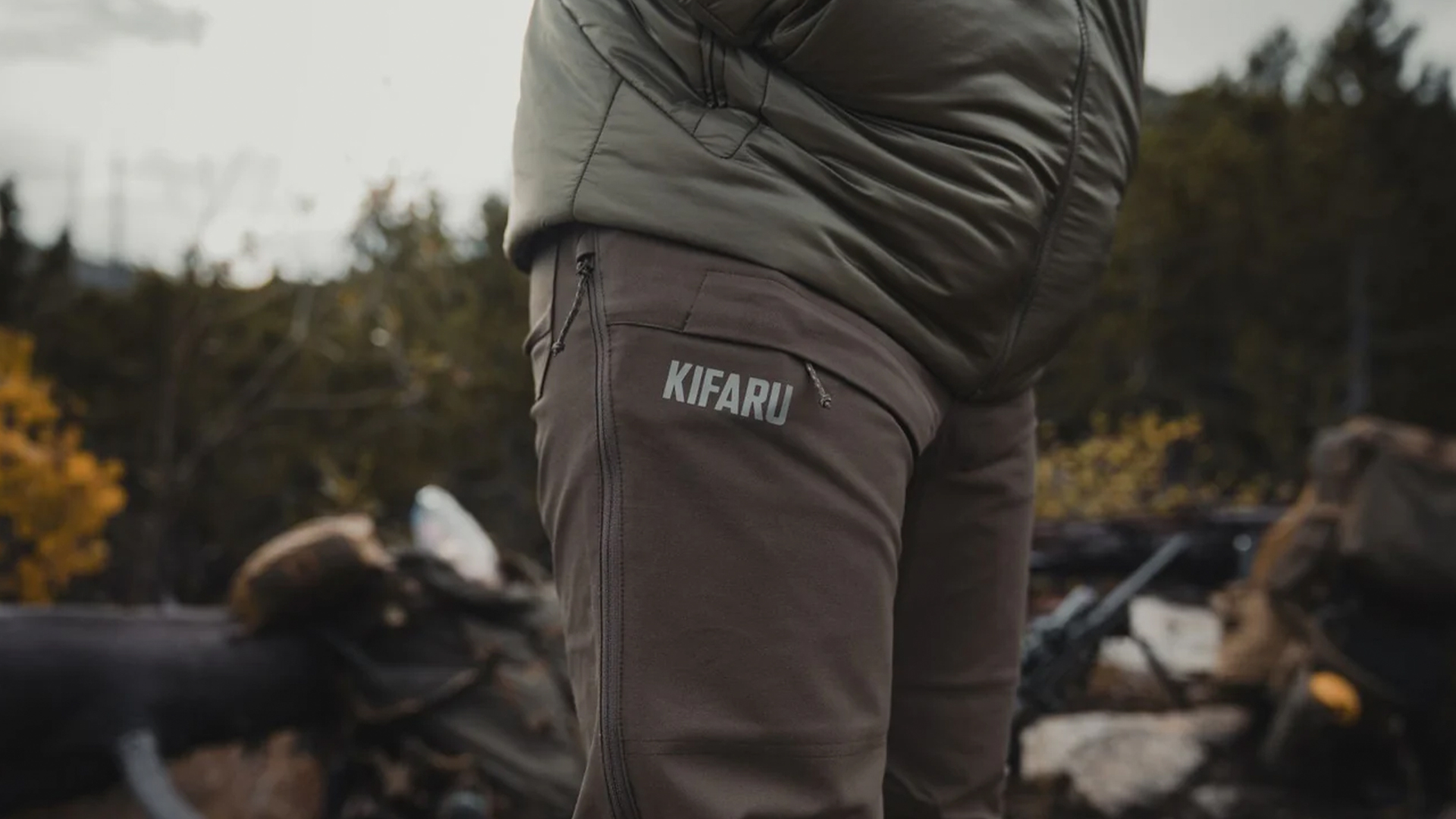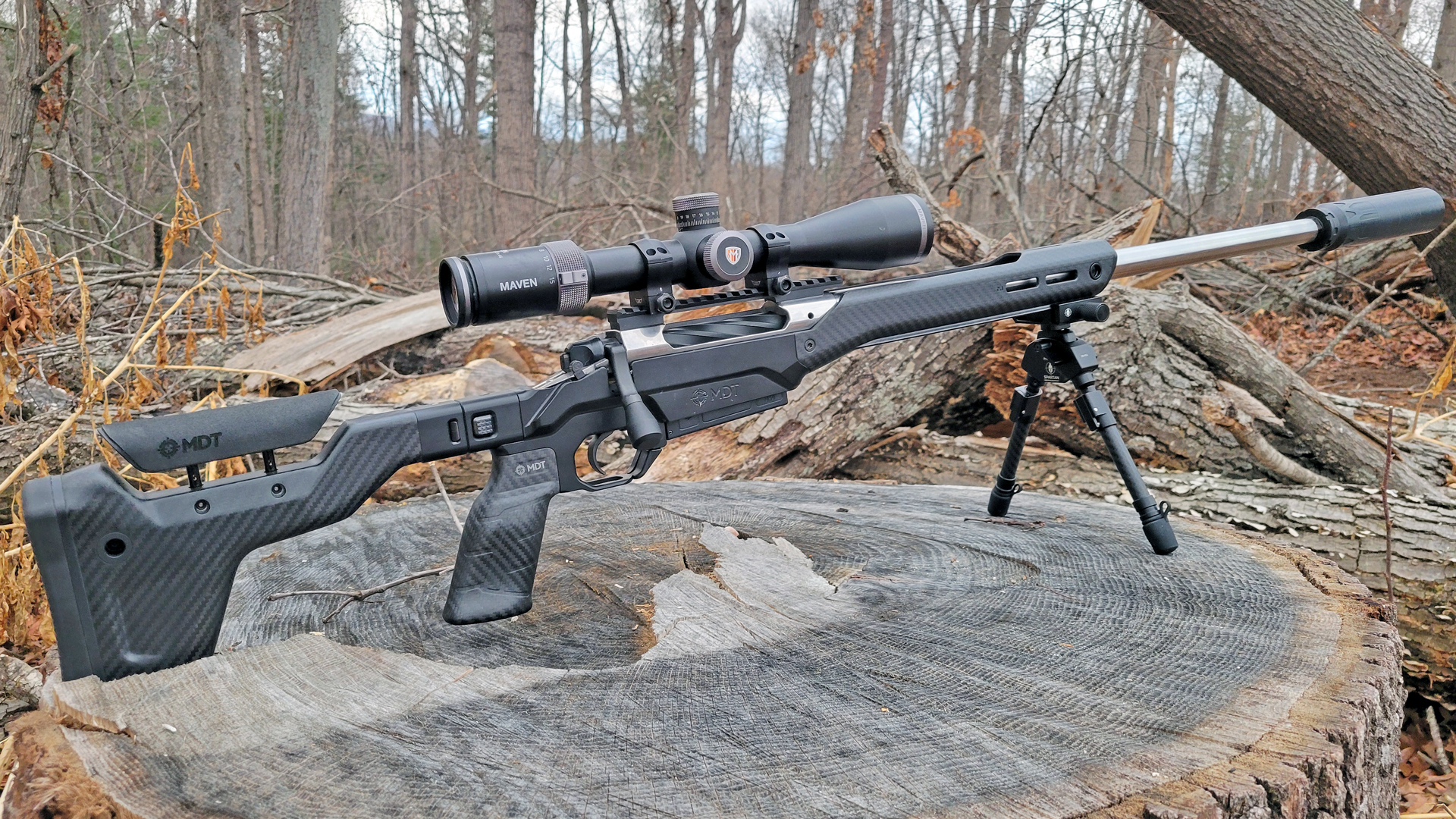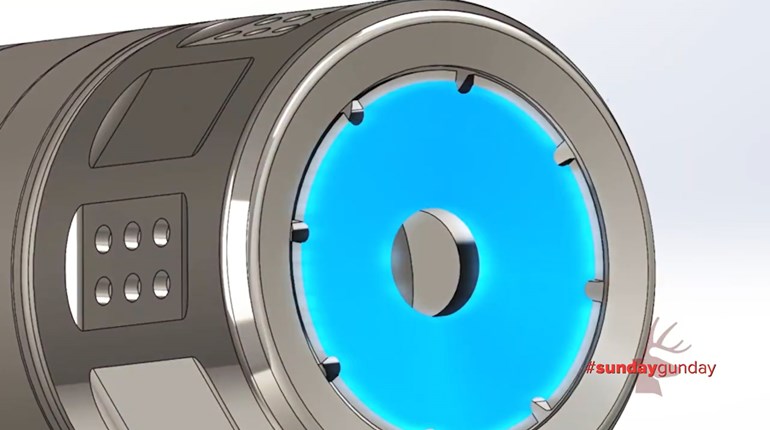
In the years since I began seriously pursuing handgun-related endeavors, one of my favorite types of .22 LR revolvers—the mid-size frame double-action—has taken a back seat to other models. Today polymer framed semi-automatics and budget priced single-action revolvers seem to rule the roost. That's a shame because double-action wheel guns in this caliber have so much to offer.
It was great news when Colt's Manufacturing LLC announced the return of the 4.25-inch barrel King Cobra Match .22 LR—a.k.a 'The Baby Snake’—during the 2022 NRA Annual Meetings and Exhibits held in Houston, Texas. Just like the Anaconda and Python series, this version of the King Cobra maintains its classic profile and attention to detail while benefiting from improvements provided by modern materials and manufacturing techniques.

Like its centerfire compatriots, the King Cobra is a double-action revolver with an exposed hammer and a cylinder that swings out the left side of the frame. The centerfire version of this model holds six rounds of .38 Special or .357 Magnum. Because the .22 LR is significantly smaller in size, there is enough room in the rimfire cylinder for 10 rounds of ammunition. With an unloaded weight of 33.8 ounces, this .22 LR produces exceptionally mild levels of felt recoil.
Colt did not skimp on the feature set for this revolver. The all-stainless steel construction is highly polished to a mirror-like shine, including the cylinder face. This extra shine may seem only to serve the vanity of the revolver’s owner but it makes the gun much easier to clean, especially the cylinder face.

The full under-lugged barrel features the signature vented rib along the top which supports a fixed-fiber-optic front sight. The square notch rear sight is adjustable for both height and windage. This revolver's sight configuration is compatible with aftermarket sights made for the .38 Cobra and .357 King Cobra models. The left-side cylinder release is pulled back, towards the hammer, to open the cylinder in typical Colt revolver fashion.
Some revolvers can exhibit trigger pulls of 12 pounds or more when fired in double-action mode. This particular King Cobra's smooth double-action trigger weighs in at 7 pounds 10 ounces, according to a Wheeler Engineering digital trigger gauge, with a relatively short 0.75-inch arch of travel. With the hammer manually cocked for single-action fire, the trigger breaks cleanly with 2 pounds 8 ounces of pressure with only about a 1/16th of an inch of travel. The revolver is capped off with a compact, soft-black rubber over-molded grip made by Hogue with the Colt logo. This grip's finger grooves and padded back strap provide plenty of purchase, especially with soft-shooting .22 LR cartridges.

In regards to ammunition reliability and flexibility, revolvers have a distinct advantage over semi-automatic pistols. Because wheel guns do not rely on the pressure generated by cartridge ignition to cycle the action, they do not suffer from jams and stovepipes that can commonly occur with semi-automatics.
As a result, revolvers like this one are 'roach guns.' They can be fired with the full spectrum of .22 LR ammunition ranging from the exceptionally low power CB loads all the way up to the hottest hyper velocity rounds available. The only two ammunition related issues I've run into with .22 LR revolvers are faulty primers and the infrequent, but possible, squib loads. However these two malfunctions are due to flaws in the ammunition and can occur with any rimfire action type.

A .22 LR cylinder can also safely chamber and fire .22 Short cartridges, .22 Long cartridges (if you can find any) and .22 LR shotshells filled with fine birdshot. These little rimfire shells come in handy when hunting, hiking or camping in areas inhabited by venomous snakes. The revolver's first and second chambers can be stoked with shot shells, just in case a dangerous pest gets too close for comfort.

However, evaluating which .22 LR loads are going to provide optimum performance from a particular handgun is not quite as straight forward as it may seem on the surface. The vast majority of .22 Long Rifle cartridges on the market are designed to be fired from carbines or rifles with barrels between 16- to 20-inches or so in length. This means the powder charges are formulated with burn rates intended to make the most of the time the bullet spends traveling through the bore before exiting the gun.

Firing rifle-tuned .22 LR rounds through a revolver, like the King Cobra, comes with a few tradeoffs. The significantly shorter 4" barrel reduces the powder's burn time which in turn reduces bullet velocity measurably. Lower velocities mean less energy upon impact, and it's not uncommon for slower moving hollow point bullets to exhibit little (if any) expansion upon impact. So expect expanding .22 LR bullets to behave like non-expanding bullets when fired from a handgun.
A feature unique to revolvers is the cylinder gap, meaning the space in between the face of the cylinder and the barrel's forcing cone. Although this distance is quite small (somewhere around .003 to .011 inches) it does allow some of the high-pressure gases to escape, which in turn reduces bullet velocity a bit more.

These factors can result in interesting and sometimes unpredictable results when evaluating a particular handgun with a given set of test ammunition. The fastest rounds when fired from a rifle may be the slowest when launched from a handgun. Price point is not always indicative of performance either. Sometimes the more humble loads can outshine those with all the bells and whistles. A good rule of thumb is to start testing with high-velocity loads (1,200 to 1,310 fps.) topped with 36-grain to 40-grain bullets and work your way up or down the bullet weights and listed rifle velocities from there.

At the range, the King Cobra proved to be utterly reliable. As expected, it loaded, fired and smoothly ejected all .22 LR cartridges with options ranging from bulk-box to premium hollow points. All of the revolver’s features and controls operated properly and there were no malfunctions, ammunition or mechanical, throughout the course of testing. The especially light trigger and useful sight system made this gun a real pleasure to work with. Time on the range and ammunition ran out long before the fun did
Let's take a look at the formal performance results which include firing 10 rounds next to a LabRadar chronograph, and five, five-shot groups from a bench rest at 25 yards, using ammunition produced by Aguila, CCI and Federal Premium. I've included the manufacturers’ listed rifle data in this table to show how the performance changes.

For the most part, I'm a 3- to 3.5-inch group shooter when firing iron-sighted handguns at this distance. The Aguila and CCI accuracy results were right in that size range. The groups produced by the Federal Champion Training round, which fell between the other two loads for muzzle energy, shaved nearly an inch off of the group sizes. It knocked out the best group of the test set of 2.19-inches which was a good indicator of this gun’s accuracy potential with the right ammunition.

I think most folks will agree that a handgun's physical appearance comes in third place when compared to its reliability and accuracy. That being said, I have to say that the Colt King Cobra's iconic lines, vented rib and high polish finish put a smile on my face as it came out of the case at the shooting range. And since this compact wheeler is reliable and accurate, it provides the best of what this company's snake gun series has to offer, along with the easy-going fun and flexibility inherent in well-made rimfire revolvers.

Technical Specifications
- Type: double-action revolver
- Caliber: .22 LR
- Cylinder Capacity: 10 rounds
- Barrel: 4.25-inch; stainless steel; full under lug; shrouded ejector; 1:16-inch RH twist
- Trigger: 2-pound 8-ounce (SA), 7-pound 10-ounce (DA) pull weight
- Sights: adjustable square notch rear; fixed-fiber-optic front
- Grip/Stocks: Hogue over-molded rubber
- Metal Finish: polished stainless
- Overall Length: 9.25 inches
- Weight: 33.8 ounces, unloaded
- MSRP: $999; colt.com












